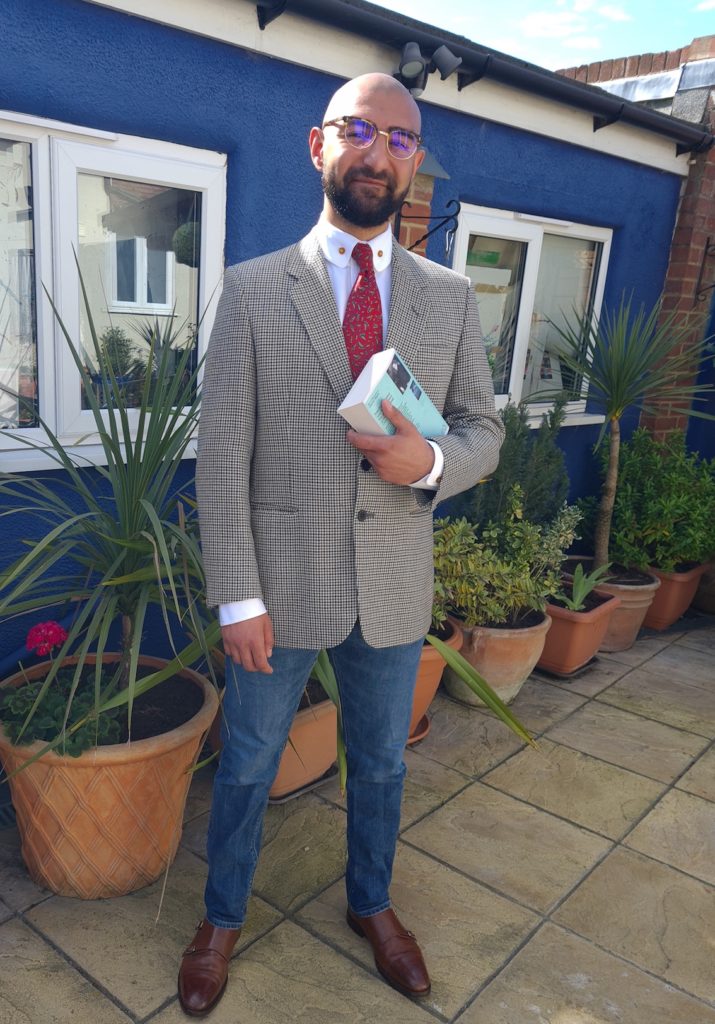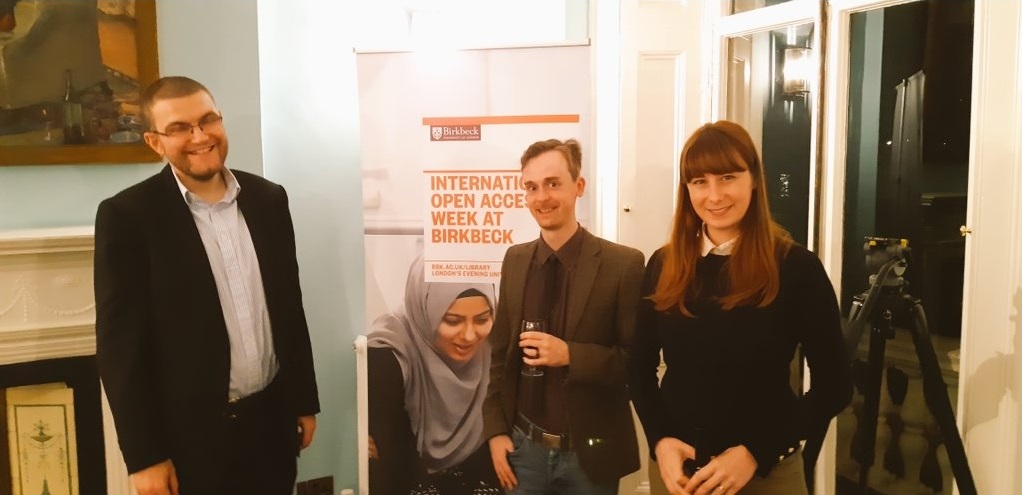Azad Ashim Sharma graduated in April with an MA in Creative and Critical Writing. Here he tells his remarkable story of life growing up, his battles with alcohol and substance misuse, starting a publishing company, and his aspirations for the future.
My childhood was strange in a way. I’ve come to look at it not through rose-tinted glasses or nostalgia, but through a sense of compassionate inquiry. Being raised in an intergenerational home deep in South London, I was co-parented by grandparents, who were political exiles from apartheid South Africa. My grandmother was a political activist and our family in South Africa are quite close to the anti-apartheid liberation movement.
Our family home was always busy: my younger brother is autistic, so we had a large care team. During my school years, I attended two local independent schools, and my brother, who is severely autistic, was home-schooled. I was bullied at school, which was really quite traumatic for me at the time. I sought solace in music and art from a young age and my most special childhood memories are of attending exhibitions with my mother.
My family’s love of reading certainly made its mark on me, as I went on to study BA English at the University of Sussex. After finishing my course, I knew I wanted to pursue a Master’s degree in Critical Theory at Sussex. Whilst I was on track for a distinction in 2015, my mental health deteriorated. I had returned to London to look after my brother who was unwell and under-supported due to austerity. I came home to support my mother with his care and all three of us were also trying to cope with the grief of losing our grandmother a couple of years before that. What started off as something I did socially spiralled out of control into alcoholism and drug addiction. I had to drop out of my Master’s degree to contend with that dark patch in my life.
I’d always been writing poetry at Sussex and this continued during this difficult patch. I published my first poetry collection in 2018, exploring islamophobia and racism in the time of Brexit Britain. In 2018, I received a surprising invitation to read at a poetry festival in India. Reading outside in Delhi, surrounded by flora and fauna in the pleasant hazy sunshine, I had something ignite in me that made me think, wow I want to do this for the rest of my life.
When I got back to the UK, I applied to Birkbeck because I knew several alumni who recommended studying there. I managed to get sober by the time I submitted my application. For a period of nine months, I was totally integrated back into normal life. Approaching a year at Birkbeck and filled with so much energy, I founded a publishing company with two friends called The 87 Press, named after the number of my family home. Our company mission was to change the landscape of publishing, by advocating for fairer trade and more smaller presses in bookstores, but also a more clearly defined representation of under-represented writers. We started off very clueless as to what owning a company would entail, but thrived off the energy of hosting events, publishing books and visiting universities to hold creative writing workshops with students, offering them the chance to get their work published.
Everything was going really well for me, but I was growing wearisome of being ‘that guy’ that always has the lime soda. So, I started walking out the door of sobriety again. I suffer from depression and anxiety too, and everything was taking its toll. During this time, I also met the love of my life who’s stuck by me through all of this recent drama. Both her and my family have been steadfast and invaluable supports.
At the beginning of 2020, I felt really disorientated with everything going on. I needed some counselling, so I signed up to Birkbeck’s counselling service. My counsellor was wonderful and compassionate, and really listened to me. I’ve now been clean for over a year – it’s not been easy, but I’m pleased that now sobriety is my normality.
My ultimate career goal is to become a lecturer, so this autumn I’m pursuing a PhD in English and Humanities at Birkbeck. I got the news that I had been awarded funding for my PhD on the day I was a year clean, which is serendipity to the max.
I plan to continue with The 87 Press during my PhD. We’ve just published our 15th book and it’s such a joy – it continues to surprise me what our initiative can do and the people it can reach. After my PhD it would be a dream to become a lecturer at Birkbeck and have the opportunity to give back. Birkbeck really is a place that gives people second chances in life.
Further Information

